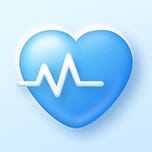Check the 12 minute podcast on this topic or scan the summary below
Sources:
"Why your resting heart rate is important," The Telegraph, 24 September 2024
Main Themes:
Resting heart rate (RHR) as a significant health indicator: RHR is a simple yet vital biomarker for cardiovascular health and overall disease risk. Studies indicate a strong correlation between higher RHR and increased vulnerability to cardiovascular disease, chronic illness, and mortality.
Physiological factors influencing RHR: RHR is regulated by the brain via the nervous system, influenced by hormones like adrenaline and noradrenaline. Chronic stress, high-calorie diets, and stimulants like caffeine can elevate RHR.
Underlying health conditions: RHR can reflect the presence of underlying conditions such as high blood pressure, diabetes, obstructive sleep apnoea, heart disease, and heart failure.
Lowering RHR: Aerobic exercise, a balanced diet with stable energy delivery, maintaining a healthy BMI, and stress management techniques like yoga and meditation can help lower RHR.
Key Facts and Ideas:
Normal RHR: 60-100 beats per minute (bpm).
Concerning RHR: Consistently above 80 bpm.
RHR and Disease Risk: A study of 1.2 million people found those with RHR above 80 bpm were 33% more susceptible to cardiovascular disease and 45% more vulnerable to all chronic diseases.
Measuring RHR: Can be done manually using a stopwatch and counting pulse, or automatically via smartwatches and mobile apps.
Important Quotes:
"High blood pressure, heart disease, heart failure, diabetes, obstructive sleep apnoea, all these conditions cause an upset in that balance [of the nervous system] and they result in a greater sympathetic drive in the heart, increasing your heart rate." - Prof Dhanjal, Consultant Cardiologist and Professor of Cardiology, University of Warwick (UK)
Recommendations:
Regularly monitor your RHR and consult your doctor if it consistently exceeds 80 bpm or is accompanied by concerning symptoms.
Incorporate aerobic exercise, a balanced diet, and stress management techniques into your routine to lower RHR and improve overall health.
Consider utilising mobile apps like BreathNow for convenient monitoring and practical guidance how lower heart rate naturally without medication
Check our detailed blog post on this topic














Share this post